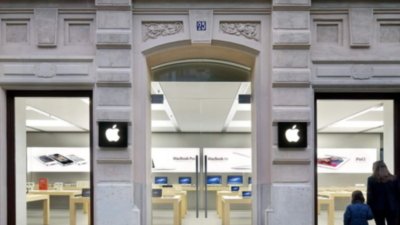The European Commission is preparing new regulations that could reduce some of Apple's absolute control over the App Store, in light of the company's position as a "gatekeeper" for customers.
The Commission's initiative, which isn't Apple-exclusive, should be ready by the end of the year, Reuters said on Wednesday. It will specifically address unfair contract clauses and trading practices between platforms and businesses — other affected platform holders could include the likes of Amazon, Google, and Facebook.
In early findings from an investigation started in 2016, the Commission said it learned that platforms were limiting access to data, delisting products or services without sufficient notice, or failing to make search results transparent. The new rules will be geared toward establishing fair practice criteria, as well as offering dispute resolution.
Apple has often been criticized for harsh App Store policies, such as kicking out apps it deems political statements or too competitive with its own. It also normally claims a 30 percent cut from all App Store transactions, even subscriptions to outside services, and blocks developers from linking to Web-based workarounds.
As a result, some services have resorted to charging higher fees on the App Store than they do elsewhere. Even when companies are willing to take the hit, that gives Apple an inherent advantage, since it can keep prices low for its own products like Apple Music, without splitting revenues.
The Commission is presumably responding to complaints from European firms like Spotify, Deezer, and others. In June last year, Sweden's Spotify sent a letter to Apple's general counsel accusing the company of anti-competitive behavior.
EDiMA — an industry group representing Apple, Amazon, Google and others — said it was "disappointed and astounded" by the Commission's announcement, claiming that "considering online platforms 'key gatekeepers' deviates greatly from the progressive thoughts put forward by the Commission in its platform communication in 2016."
 Roger Fingas
Roger Fingas








 Christine McKee
Christine McKee
 Stephen Silver
Stephen Silver

 Charles Martin
Charles Martin


 Amber Neely
Amber Neely








36 Comments
It's as I completely expected if this happens. The EU Commission has been on an "unfair competition" witch-hunt for the last several years. I fully believe Apple, Google, Amazon and Facebook will be under yet more scrutiny from EU authorities in the next couple of years. It's just beginning.
Wow. So basically you can't have any ownership over the product or your company service because that will be considered "anti-competitive"? That makes zero sense and that approach is progressive indeed...
Although, given what happened in the last couple of years, in no way I would consider it as a compliment.
That is like not allowing a straight A student to use his brain, because that would be anti-competitive in respect to a D grade student.